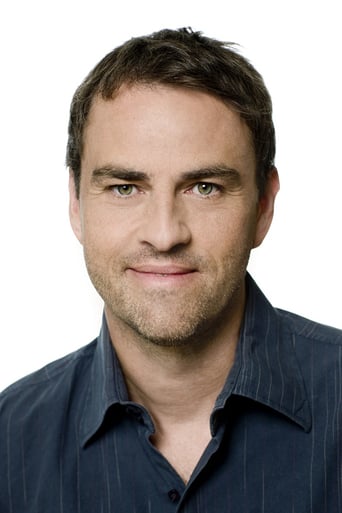KnotMissPriceless
Why so much hype?
Clevercell
Very disappointing...
Jeanskynebu
the audience applauded
Geraldine
The story, direction, characters, and writing/dialogue is akin to taking a tranquilizer shot to the neck, but everything else was so well done.
wavecat13
This dark, moody French psychological drama/mystery has always been a favorite of mine. The narrative, based on a novel by Melville, follows an unusual but absorbing course. A young, upper class writer (well played by Depardieu) finds himself being stalked by a mysterious young woman, who eventually reveals some family secrets to him, sending him on a weird, downward spiral. Thrown into the mix are his suffering fiancée, an increasingly resentful cousin, a band of avant guard (I am misspelling this because IMDb's spelling check is not accepting the correct spelling) artists and revolutionaries, and beautiful Catherine Deneuve. Carax is a master at weaving together fascinating images, sounds (music by Scott Walker), and performances into an edgy, unique mix. Imho we need more films like this one.
robert-temple-1
No one would ever question that director Leos Carax is a genius, but what we wonder about is: is he an insane genius? So many people hated this film! I am normally the first person to accuse many French directors of making offensive, boring, disgusting and pretentious films (such as the horrible recent film 'L'Enfant' and the pointless and offensive 'Feux Rouges'). But strangely enough, I actually think that 'Pola X' is an amazing film, made with great skill and passion by a master of his craft, and containing remarkable performances. The film does carry melodrama to more extreme lengths than I believe I have ever seen on screen before. But then, Carax is extreme, that we know. The film also contains what I consider way over-the-top Trotskyite or Anarchist fantasies and wet-dreams, what with a mysterious group of young men training to fire machine guns at the bourgeoisie in between playing Scott Walker's rather fascinating music in a band which has its recording sessions in an abandoned warehouse filled with squatters and fires burning in old steel barrels. Guillaume Depardieu plays a rich young man in a château (whose step-mother is Catherine Deneuve, and he wanders into her bathroom while she is naked in the bath, by the way). But he suddenly 'snaps' completely when he discovers that his deceased father, a famous diplomat, had fathered an illegitimate daughter who had been effectively disposed of by Deneuve as an inconvenience. This is because the sister suddenly turns up as a kind of Romanian refugee with wild dishevelled hair, expressionless face, and little ability to speak French coherently. Depardieu then transforms himself into a 'class hero' of the far left and wants to kill or destroy his family for their hypocrisy and corruption, and lives in squalor and extreme poverty, while scorning a vast inheritance. He then commences an incestuous sexual relationship with his half-sister, which is shown in an explicit sex scene which has offended many people, though I have no objection to it, as I think people are far too hysterical about sex, especially in America, where apparently it never happens. The intensity of the acting and the filming make this unlikely scenario come off as an experience of powerful, if depressing, hyper-melodrama. The differences between Carax making an extreme film like this and the numerous extreme French films which I think are pretentious and disgusting are (1) that Carax is an excellent filmmaker, and (2) he is seriously attempting to explore a meaningful, if harrowing, extreme emotional condition, whereby a human being disintegrates and turns against his background. Many would say that the extreme elements in this film were gratuitous, but I don't agree. I believe Carax was genuine, and was not making an exploitation picture at all. It is very difficult to defend a man who goes that far and who, for all I know, may be a complete madman, but I believe he deserves defending for this remarkable cinematic achievement.
Graham Greene
As others have no doubt previously noted, 'Pola X' (1999) was the much anticipated return feature from former "cinema du look" stalwart and infant-terrible Leos Carax; a bold and imaginative filmmaker who made a name for himself in the early to mid nineteen-eighties with the quirky and melancholic romantic fantasy films Boy Meets Girl (1984) and Mauvais Sang (1986), before taking his central themes of unrequited love and alienated Parisian youth to the next conceivable level with the film Les Amants Du Pont-Neuf (1991). That particular film was supposed to be the one that would finally introduce Carax to a wider cinematic audience; finding the filmmaker refining his usual themes and structural preoccupations with a larger budget and much in the way of creative freedom. Sadly, things didn't go to plan; the eventual film - a wildly uneven though often quite captivating blend of romantic folly and violent social realism - went massively over-budget and over-schedule before finally limping out with a limited release almost half a decade after Carax had initially started the project.As with films like Apocalypse Now, Blade Runner, The Adventures of Baron Munchausen and the work of Rainer Werner Fassbinder, subsequent years have seen a re-appraisal of said film, with many people being drawn to Les Amants Du Pont-Neuf; seeing it as some sort of flawed epic or a minor masterpiece showcasing the triumph of imagination and free-thinking independence during the last gasp of intelligent, daring and entirely unique European film making. Time, however, has been less kind to the film in question; with the general consensus of most viewers and professional critics being that Pola X is muddled, confusing, plodding and pretentious. One wonders if these people are familiar with Carax's previous work at all.Pola X is loose adaptation/up-date of Herman Melville's controversial novella, Pierre; or the Ambiguities, the title here an acronym for the novel's original French title, while the "X" denotes the number of drafts the script went through. Carax moves the story from old New York to contemporary Paris, spending the first half of the film projecting a backdrop of sun-kissed gardens and stately manner houses as we are introduced to the spoilt and carefree existence of our young hero. When we meet him, Pierre (Guillaume Depardieu) is living the good life, sharing the family house with his glamorous mother and about to be married to his beautiful fiancé. Pierre has also written an incredibly successful novel, albeit, under the pseudonym Aladdin, giving him much in the way of acclaim and public interest and the offer from his publisher to create a follow-up. Things become complicated, however, when Pierre follows a dark and mysterious young woman who has been stalking him, and, in one of the film's most talked-about and visually cryptic sequences, discovers that the woman is in fact his half-sister.What follows requires a great leap of faith on the part of the audience, as Pierre, hooked completely by the confession of this wounded lost soul, takes it upon himself to atone for the sins of his father, who abandoned the girl when she was still a child, and carries her under his wing in an attempt to make right what was wrong through the writing of his second novel. The film, like Carax's earlier work, specifically Les Amants Du Pont-Neuf, skirts freely between the idealised and romantic poetry of his grand visual gestures and the squalor and violence presented by the real world. As a result, it's an incredibly bleak work; one that visualises the slow destruction of the central character's world with an opening montage of world war II stock footage over a clanging industrial soundtrack from Scott Walker that re-appears throughout the film as the grip that Pierre might have had to the world he once knew becomes more and more strained.Some problems that people have with the film include the fragmented narrative, which has characters drifting in and out like leaves being scattered by the wind, and the uncertainty and blind faith presented in the central concept, in which Pierre gives up his idyllic, affluent lifestyle to live a destitute existence on the fringes of society; all for a woman that he's never really known and only has her word on the matter that they are in fact brother and sister. Another point that many take issue with is the prolonged and sexually-explicit love scene that takes place during the second half of the film. Although shot in almost total darkness - recalling the aforementioned scene in which Isabelle (Yekaterina Golubeva) makes her confession to Pierre as the couple wander lost and confused through a darkened woodland - the scene, regardless, is no less intimate; featuring fine performances from both lead actors and the provocative inclusion of an un-simulated blow-job and vaginal penetration shot.The explicitness of the sex scene here is intended to drive home the potential illicitness of this union between brother and sister and how the love that grows between the two of them will only end up destroying everything that follows. For me, the film gripped from beginning to end, mostly because of the powerful central performance from Depardieu, who brings a De Niro-like level of intensity to Pierre; this loveless character who only wants to do right and to experience something deeper and more real than the sheltered and carefree existence that he had previously known, undone and corrupted by a the secrets and sins of a world he never knew existed. Carax's direction is more understated than his first two films, capturing the raw intimacy central to the relationship between Pierre and Isabelle and the spiralling sense of squalor and personal despair that Pierre descends into; finally manifesting itself in an impressive CGI dream-sequence in which Pierre and another central character are washed away on a tidal wave of blood. A fitting prelude to that unforgettably downbeat final.
v-hardiyanto
This movie is so unreal. French movies like these are just waste of time. Why watch this movie? Even, I did not know..why. What? The well known sex scene of half-siblings? Although the sex scene is so real and explicit, but the story it is based upon is so unreal. What is the use of it, then? Can you find easily in life, half sibling doing such things?Did I learn something from this movie? Yeah: some people are just so fond of wasting time making such movies, such stories, such non-sense. But for those who like nihilism, nothingness in life, or simply a life without hope, then there you are.. you've got to see this movie.Only one worth adoring, though: CATHERINE DENEUVE. She's such a strikingly beautiful woman.





